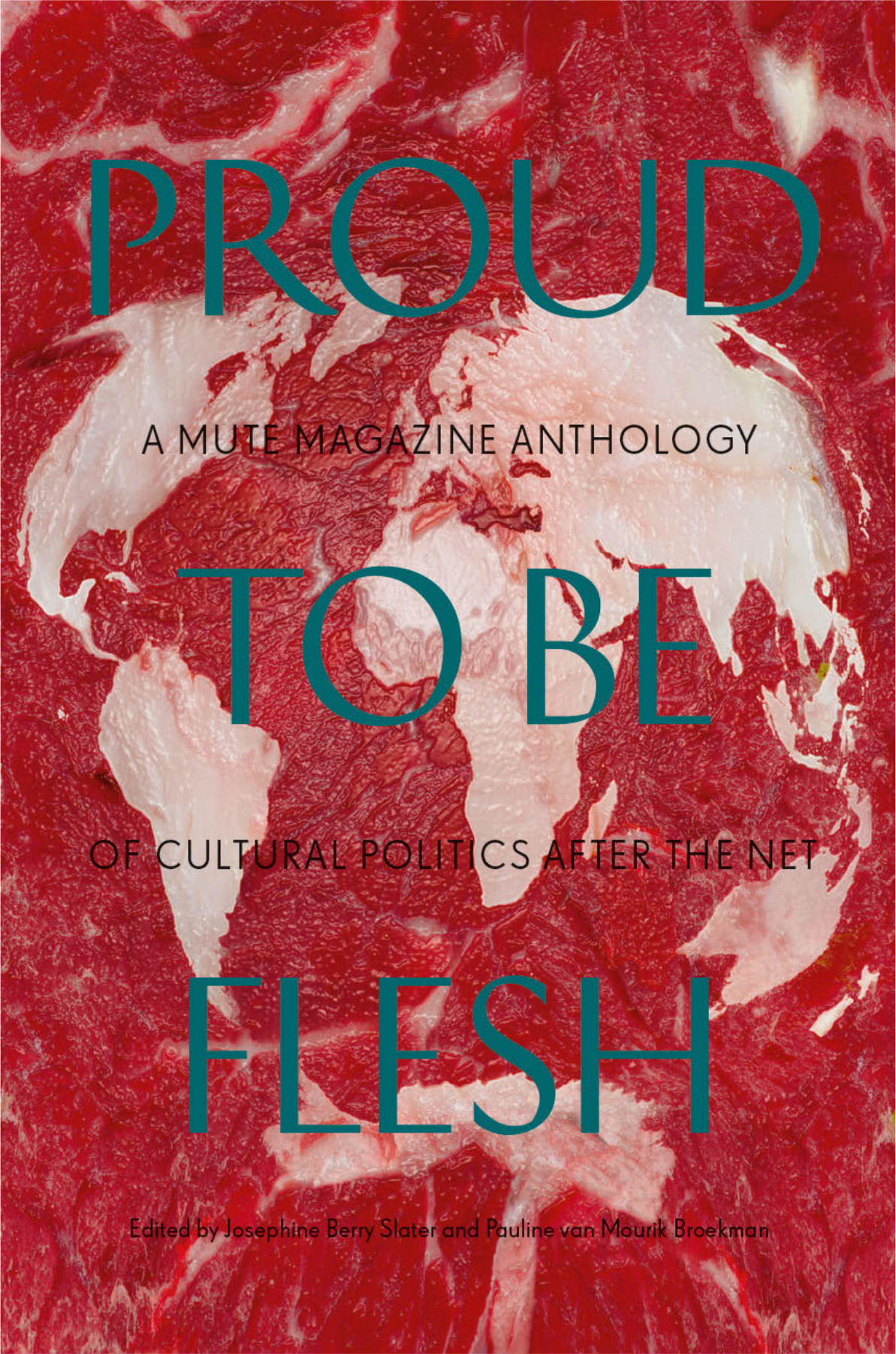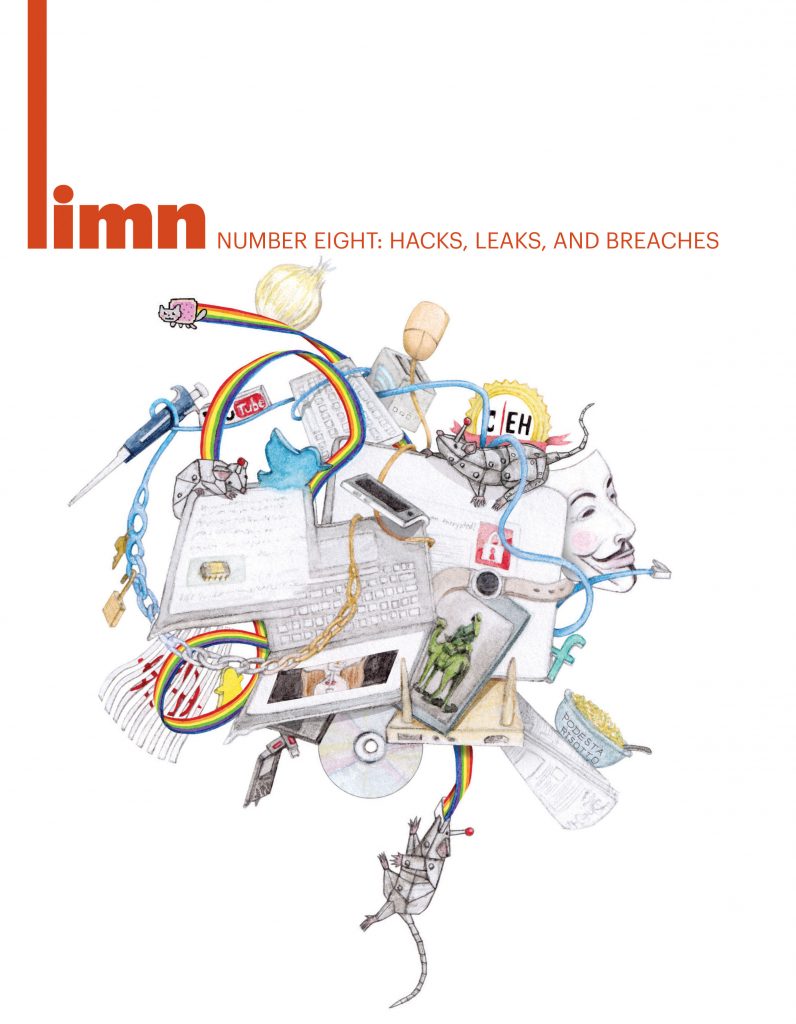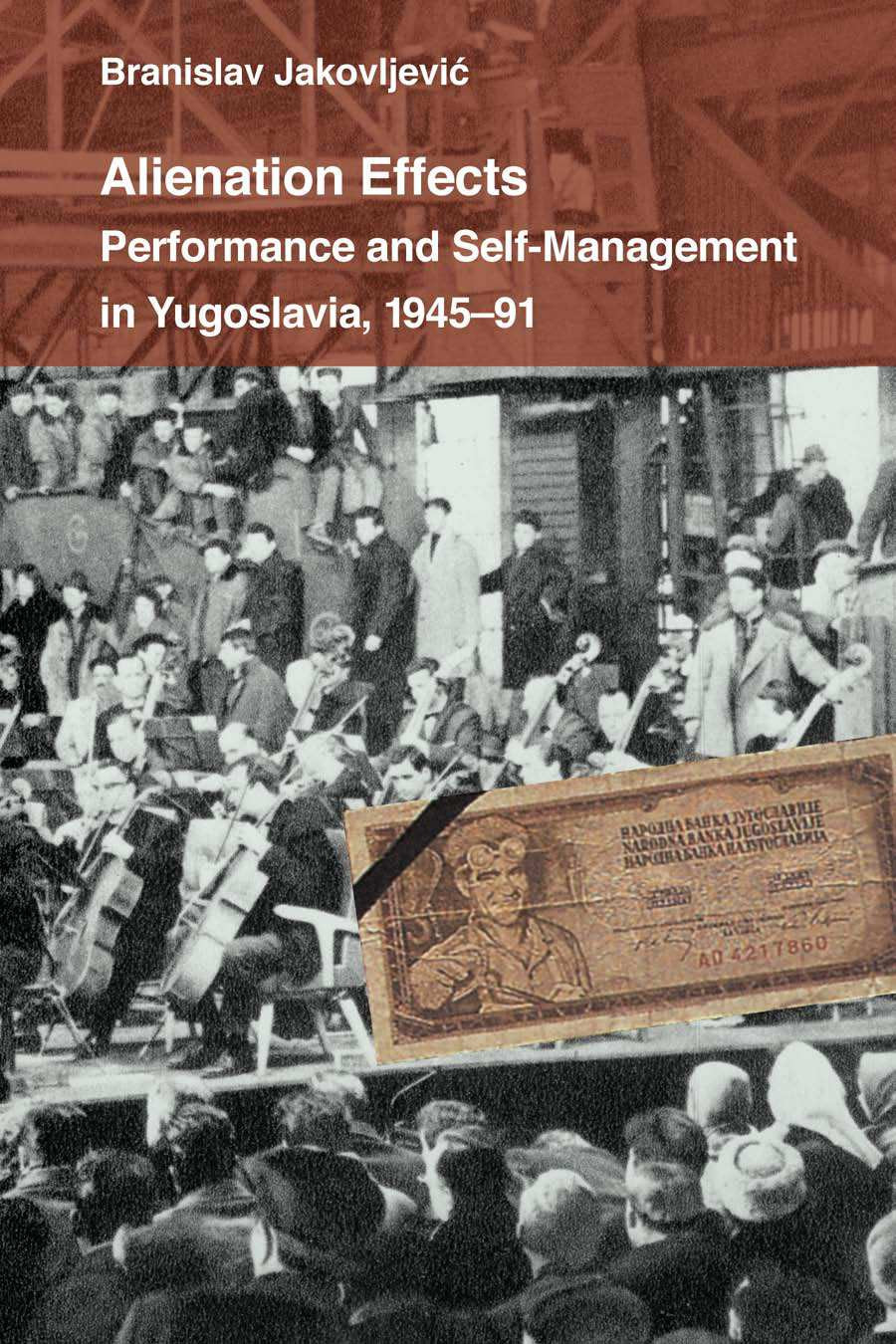Proud to be Flesh: A Mute Magazine Anthology of Cultural Politics after the Net (2009)
Filed under book | Tags: · art criticism, art history, internet, london, media, media art, net culture, networks, politics, technology, theory

“In late 1994, back in the days of dial-up modems and Netscape Navigator 1.0, Mute magazine announced its timely arrival. Dedicated to an analysis of culture and politics ‘after the net’, Mute has consistently challenged the grandiose claims of the communications revolution, debunking its utopian rhetoric and offering more critical perspectives.
Fifteen years on, this anthology selects representative articles from the magazine’s hugely diverse content to reprise some of its recurring themes. This expansive collection charts the perilous journey from Web 1.0 to 2.0, contesting the democratisation this transition implied and laying bare our incorporeal expectations; it exposes the ways in which the logic of technology intersects with that of art and music and, in turn and inevitably, with the logic of business; it heralds the rise of neoliberalism and condemns the human cost; it amplifies the murmurs of dissent and revels in the first signs of collapse. The result situates key – but often little understood – concepts associated with the digital (e.g. the knowledge commons, immaterial labour and open source) in their proper context, producing an impressive overview of contemporary, networked culture in its broadest sense.
Proud to be Flesh features a mix of essays, interviews, satirical fiction, email polemics and reportage from an array of international contributors working in art, philosophy, technology, politics, cultural theory, radical geography and more.”
Edited by Josephine Berry Slater and Pauline van Mourik Broekman, with Michael Corris, Anthony Iles, Benedict Seymour and Simon Worthington
Publisher Mute Publishing, London, with Autonomedia, New York, 2009
ISBN 9781906496289, 1906496285
572+48 pages
Reviews: Nicholas Thoburn (New Formations), Charlotte Frost (Rhizome), Julian Stallabrass (New Left Review).
PDF, PDF (15 MB, updated on 2019-6-12)
Comment (0)Limn, 8: Hacks, Leaks, and Breaches (2017)
Filed under magazine | Tags: · activism, hacking, hacktivism, information warfare, leaking, politics, security

“Hardly a day passes without news of a major hack, leak, or breach; with the scale of computer use and reliance on digital forms of data, no sector of society is immune to these data dumps, infiltrations, and floods. From the surveillance of dissidents to the hacking of elections to the weaponization of memes, hacking is changing in character, and it is changing the world. In this issue we ask whether hacking and hacks have crossed a techno-political threshold: how are hacks, leaks and breaches transforming our world, creating new collectives, and changing our understanding of security and politics. How has the relationship of hacking and hackers to their own collectives, to governments, and to the tools and techniques been transformed recently? What does it mean to be a hacker these days, and how does it differ from engineering, from “cyber-security,” from information warfare or from hacktivism?”
Contributors: Claudio Guanieri, Nils Gilman, Jesse Goldhammer, Steve Weber, Finn Brunton, Matthew Jones, Molly Sauter, Rebecca Slayton, Matthew Goerzen, Adam Fish, Luca Follis, Mustafa Al-Bassam, Sarah Tochetti, Paula Bialski, E. Gabriella Coleman, Robert Tynes, Philip Di Salvo, Sarah Myers West, Ashley Gorham, Joan Donovan, Goetz Bachmann, Tor Ekeland, David Murakami-Wood, Kim Zetter. With science fiction by Cory Doctorow.
Edited by E. Gabriella Coleman and Christopher M. Kelty
Published Feb-Mar 2017
Creative Commons BY-SA 3.0 Unported License
HTML (updated on 2019-7-8)
Comment (0)Branislav Jakovljević: Alienation Effects: Performance and Self-Management in Yugoslavia, 1945-91 (2016)
Filed under book | Tags: · 1950s, 1960s, 1970s, 1980s, art history, conceptual art, eastern europe, marxism, performance, performance art, politics, socialism, yugoslavia

“In the 1970s, Yugoslavia emerged as a dynamic environment for conceptual and performance art. At the same time, it pursued its own form of political economy of socialist self-management. Alienation Effects argues that a deep relationship existed between the democratization of the arts and industrial democracy, resulting in a culture difficult to classify. The book challenges the assumption that the art emerging in Eastern Europe before 1989 was either “official” or “dissident” art, and shows that the break up of Yugoslavia was not a result of “ancient hatreds” among its peoples but instead came from the distortion and defeat of the idea of self-management.
The case studies include mass performances organized during state holidays; proto-performance art, such as the 1954 production of Waiting for Godot in a former concentration camp in Belgrade; student demonstrations in 1968; and body art pieces by Gina Pane, Joseph Beuys, Marina Abramovic, and others. Alienation Effects sheds new light on the work of well-known artists and scholars, including early experimental poetry by Slavoj Žižek, as well as performance and conceptual artists that deserve wider, international attention.”
Publisher University of Michigan Press, 2016
Creative Commons BY-NC-ND License
ISBN 9780472900589
xii+369 pages
Reviews: Jestrović (Contemp Theatre Rev), Goulish (TDR), Tepavac (arcadia), Halilbašić (rezens.tfm), Radosavljević (Modern Drama), Jovićević (Peščanik).
PDF, PDF (3 MB)
Images, PDF (HathiTrust)
PDF chapters (Jstor)

